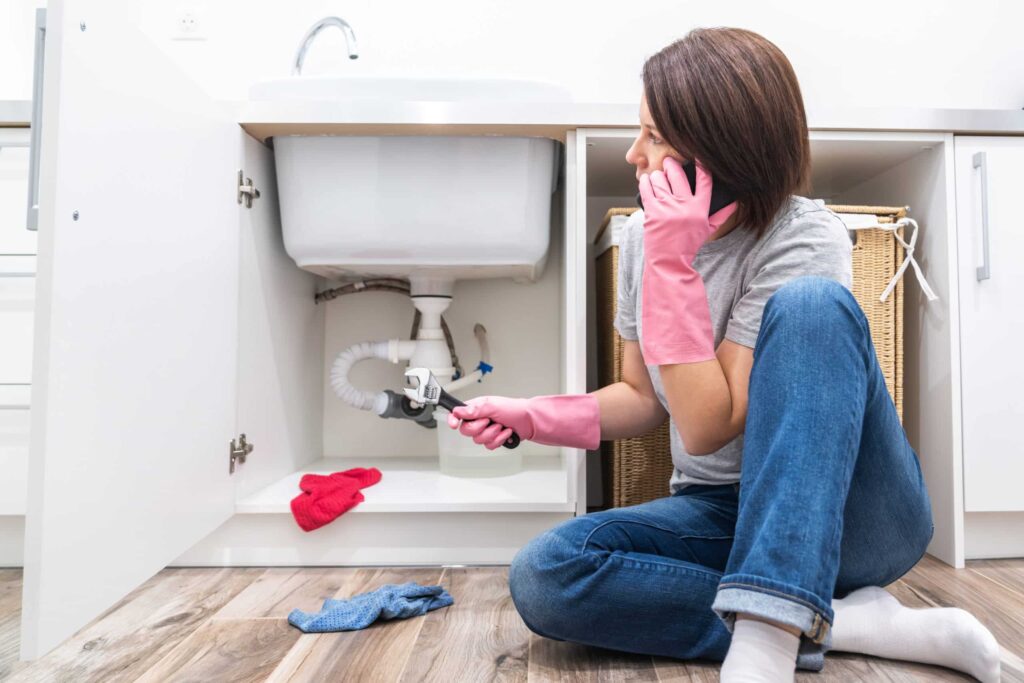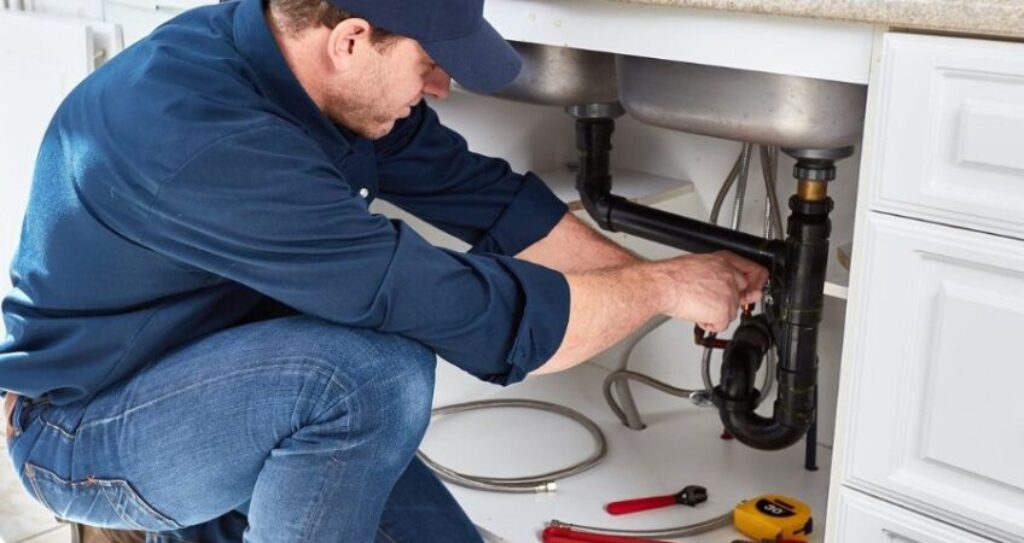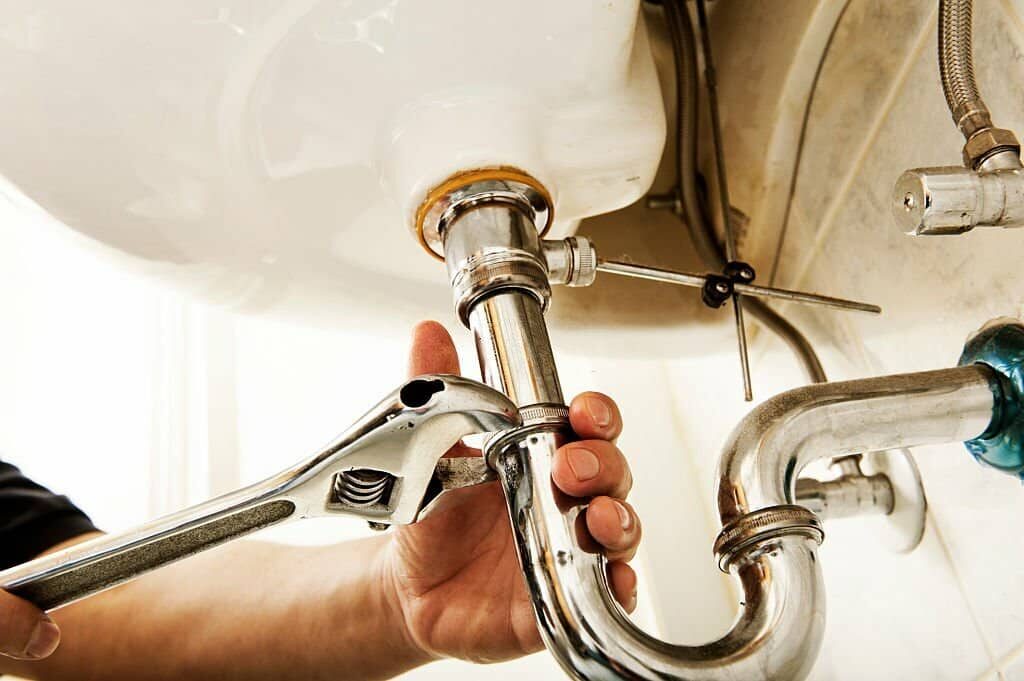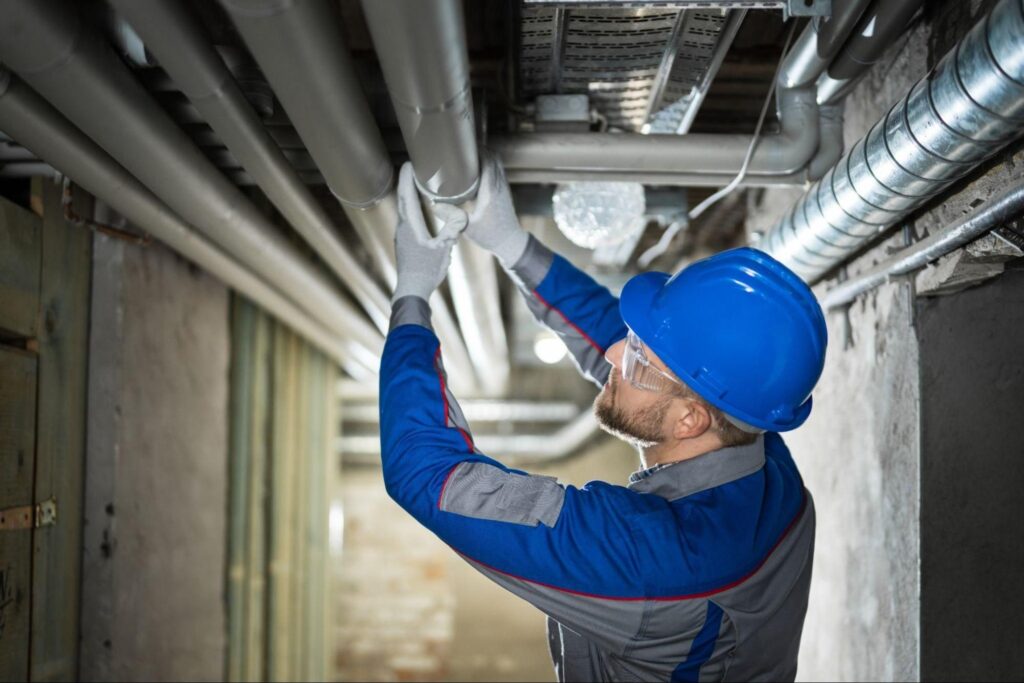
When you think about home repairs, the plumbing system tends to be quite far down the list of pressing concerns, until a critical emergency springs up literally from nowhere. Plumbing calamities, the likes of which may include severe leaks, burst pipes, or a major breakdown of a pivotal component such as a hot water system, are recognised as some of the most challenging predicaments homeowners can be faced with. These issues tend to surface suddenly, cause a severe disruption to daily activities, rapidly deteriorate and invariably lead to substantial costs if not addressed urgently and appropriately.
In managing such trying situations, homeowners will need to demonstrate calm, rational responses, make quick decision-making, and, very often, invoke the services of qualified professionals. While you may consider hiring a professional to help fix the issue, having the skills to identify, contain, and address plumbing emergencies yourself can be invaluable.
Drawing from industry insider tips and professional expertise, this comprehensive guide aims to equip homeowners with the required knowledge and strategies to confidently tackle any plumbing emergencies. By examining the various facets of dealing with plumbing emergencies, from the initial detection to damage control, professional intervention, and the essential steps to future prevention, this guide endeavours to prepare you for the unexpected, and offer a reliable resource amidst these stressful circumstances.
Table of Contents
Understanding a Plumbing Emergency

Source: linkedin.com
To gain a comprehensive view of plumbing emergencies, it’s important first to establish a clear comprehension of what such crises entail. Fundamentally, a plumbing emergency is a situation where a failure or malfunction within a property’s plumbing system poses a direct threat to the building’s infrastructure, disrupts necessary daily activities, or compromises the safety and well-being of its occupants.
The instances that commonly lead to a plumbing emergency are unforeseen pipe bursts, severe leakages, clogged drains that result in an overflow of the basin or toilet, or the sudden failure of a major plumbing fixture. These predicaments predominantly occur due to a combination of factors including old and worn-out pipes that have exceeded their lifespan, initial installation errors, or a lack of routine system maintenance. Accidental damage could be another factor with instances like pipes getting punctured during gardening, or a heavy object being dropped leading to a fixture crack.
The aftermath of overlooking or inadequately addressing these situations has grave consequences. Prolonged water exposure can severely damage the building’s structures, ruin expensive furniture, and promote the unwanted growth of harmful mould and fungus. It sheds light on a remarkable but unfortunate anecdote of a family residing in north Adelaide. They had to abandon their house due to extensive water damage triggered by a burst pipe that wasn’t addressed promptly. The resulting rehabilitation work lasted for several months and culminated in high repair costs.
Initial Steps to Handle a Plumbing Emergency
The initial steps taken upon encountering a plumbing emergency can significantly tilt the scale between minor repairs and severe damage. Therefore, upon discovering an emergency, the first line of action should be to instigate measures to prevent further escalation.
A crucial preliminary step is to halt the water flow. You can usually accomplish this by switching off the main water valve. The location of this valve might vary between properties but is typically near the water metre. It’s also beneficial to confine the leaking water to one area by capturing it in buckets or other containers, thus preventing water from spreading into unaffected areas.
Preparing for the Arrival of The Plumber

Source: home-maintenance-dubai.com
While you’re waiting for professional help, you can take several proactive steps to safeguard your property further and expedite the repair process. Some of these steps include moving away all valuables, furniture and appliances from the affected area to prevent collateral damage. Water damage can have severe consequences for almost every kind of material, so it’s beneficial to clear what you can.
Another helpful step is to create a detailed account of the damage for insurance purposes. Saving photographic and video evidence documenting the exact extent and origin of the damage will support your insurance claims in the future.
Additionally, safely turning off your property’s water and electricity supply is a crucial skill. Electricity supply can be turned off from the fuse box while water can be shut off from the main supply. However, remember only to undertake this when safe to do so; in severe flooding, it’s advised not to touch circuits or any electrical equipment.
Choosing the Right Plumber for Emergency Situations
Entrusting your plumbing emergency to the right professional is an important decision that influences cost, repair timelines, and the successful restoration of your plumbing system’s future function. A desired professional on whom you can rely, should have a verifiable reputation and credentials that don’t raise any red flags. You can verify this with the help of reviews sourced online or by asking for referrals.
The professional service you choose should be licensed to operate within your locality, ensuring they comply with all relevant rules and regulations. In Australia, the Australian Communications and Media Authority maintains a public record of licensed plumbers. As part of your assessment, you should be able to ask them about their previous experience in handling similar emergencies, their anticipated timeline for resolution, possible contingencies, as well as their terms, conditions and costs
How to Avert Future Plumbing Crises

Source: linkedin.com
Once the immediate crisis is resolved, your focus should be directed at future prevention. Several plumbing emergencies can be avoided with routine inspections and maintenance practices that allow you to pinpoint potential problems and areas that need to be addressed urgently. A small drip or leak left unattended today could potentially turn into a substantial leak tomorrow. Ensuring regular plumbing system check-ups and maintenance reduces the likelihood of an emergency happening suddenly.
Engaging professionals for routine inspections ensures that the potential damages that might be overlooked by homeowners can be identified and addressed early. Finally, taking the responsibility to improve your understanding of your home plumbing system is also valuable. Numerous reliable resources online offer advice, warnings and maintenance guides specifically tailored for homeowners – investing time in these can have significant benefits in the long run.
Conclusion
In conclusion, managing a plumbing emergency will require you to truly understand the nature of the problem, remain calm, and respond in the quickest and most effective manner you can. The contribution of professional intervention to these situations cannot be emphasised enough. Indeed, the ultimate goal is not just to navigate these emergencies but to prevent them from occurring in the first place, and the expert advice offered in this guide is meant to uplift you on that dual journey – from reactive solutions to proactive prevention.








